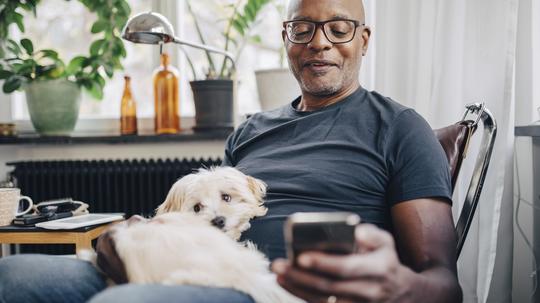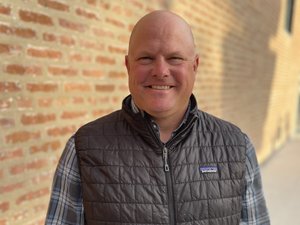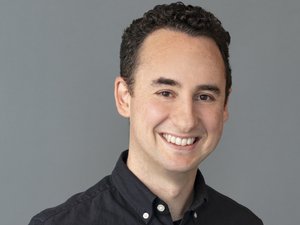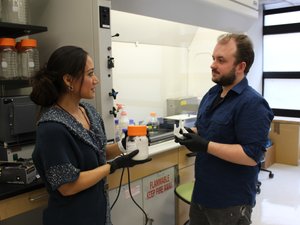
Many large-scale disasters, whether it be a pandemic, natural catastrophe or terrorist attack, can trigger anxiety, depression and other mental health challenges to those affected.
Amid the coronavirus crisis, which has virtually affected everyone's life in some way, Americans have reported that their mental health is suffering under the turmoil the pandemic has caused, according to a Gallup poll.
The increase in mental health conditions and the reality of sheltering in place has also resulted in more people seeking out virtual mental health resources, such as Chicago startup Blueprint.
Founded in 2016 by Danny Freed, Blueprint's platform collects and analyzes data from patients struggling with mental health conditions. Patients complete regular and standardized assessments via the startup's app about their symptoms and progress. Then their physician reviews the data and provides appropriate care based on it during the next patient visit, whether it be in person, by phone or video chat.
“It’s really meant to be a tool that makes care plans or treatment plans more effective,” Freed said.
Since the beginning of March, Freed said Blueprint has seen a 205 percent increase in usage, a 149 percent increase in new patient signups and a 141 percent increase in new clinician signups. Blueprint currently has more than 300 clinicians and 3,000 patients across 16 different states using its platform, Freed said.

“What this tells us is that more people are getting access to what’s proven to be this higher quality form of mental healthcare," he said.
Blueprint collects data on a patient's mood, sleep patterns and exercise regimens, among other things. It is designed to treat a host of mental health conditions, including depression, anxiety, post-traumatic stress disorder and bipolar disorder.
In general, the most common assessments Blueprint administers are for depression and anxiety, and throughout the coronavirus crisis, assessments for these conditions have increased, Freed said.
“Anecdotally, over the past couple months, we’ve seen a continuous uptick in severity across the general anxiety assessments,” he said. “These types of large-scale disasters are pretty much always accompanied by increases in depression and post-traumatic stress disorder diagnoses."
Blueprint is free for patients to use, meaning anyone, anywhere could use the app independently of a physician, but the company said it is designed and works best when used in conjunction with a professional, like a social worker, therapist, psychologist or physiatrist. Most of the time, Blueprint reaches patients by distributing its software to providers, who then enroll their patients.
The startup makes money through fees it charges clinics when it bills insurance companies on their behalf.

Though some of Blueprint’s recent growth can be attributed to an increase in the number of people dealing with mental health issues, the startup’s usage influx also stems from the necessity of people using telehealth services as the pandemic has forced people to stay home as much as possible. But Freed said even after the pandemic is over, he expects telehealth usage to continue to rise as more patients and physicians adopt it.
Telehealth usage across the healthcare industry is also likely up because in March, the Centers for Medicare and Medicaid Services expanded telehealth coverage, which had previously been tightly restricted.
Other local healthcare and telehealth startups are also seeing increases in usage amid the coronavirus crisis. Chicago startup Upfront, which helps providers generate scheduling and logistics improvements, has seen its number of clients double. Additionally, more patients with OCD are using NOCD, a local telehealth app that provides 1-on-1 virtual therapy sessions between OCD patients and licensed therapists.
Last year, Blueprint raised $1.3 million in a seed round led by Lightbank and Hyde Park Angels. The startup has now grown to employ 10 people, who are working remotely during the pandemic. But the transition to remote work has been smooth, Freed said.
“The team has handled it great,” he said. “We really didn’t lose a step as we made the switch."








